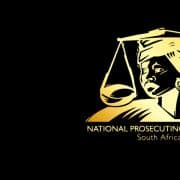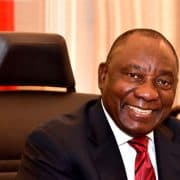|
Getting your Trinity Audio player ready...
|
By David Lewis
First published in Business Day
Given that burgeoning corruption was the principal basis for removing the Zuma government, progress on this front features prominently in the assessments of President Cyril Ramaphosa’s first 100 days in office.
Short-term gains in tackling corruption are important and, some disappointments notwithstanding, the new administration has done well. However, these interventions inevitably tackle symptoms. If we are to avoid another orgy of grand corruption, we need to target the factors that underpinned the great heist of the South African state.
First we need to understand how the state was captured. The key word here is accountability.
On the one hand, the fall of the Zuma administration is a story about accountability in action. The media, courts, civil society organisations and certain of the chapter nine institutions held Zuma and his co-conspirators to account, ultimately forcing their exit.
On the other hand, key public institutions of accountability, most notably the criminal justice institutions and Parliament (as well as the provincial and local legislatures), have utterly failed the public. The dire consequences of this failure to hold perpetrators to account are thoroughly documented. These were the first public entities to be captured.
The upshot has been to extend absolute impunity for the criminal conduct of the captors of the state, notably the toxic clique around the Zuma and Gupta families. Although there are signs of life in pockets of the criminal justice institutions, turning them around is a Herculean task, though not beyond the bounds of possibility.
Parliament’s failure to hold the executive to account embodies particularly serious consequences.
Because of this failure of representative institutions of democracy, liberal democratic systems increasingly depend upon the independence of other institutions of accountability — the courts, regulators, public servants, media and civil society organisations.
Thus the only effective institutions of accountability are those staffed by unelected and, because of the complexity of their work, highly educated individuals. This state of affairs, combined with the failure of liberal democracy to make good on its promise of a better material life for successive generations, provides a perfect entry point for demagogues to mobilise electoral support by encouraging the public to “drain the swamp” of these unelected elites.
But no sooner has the democratic process got them into office, then they start beating up on all who seek to constrain them by invoking their democratic rights: on opposition parties, on civil society, on the courts, on the media, on women, on LGBTIQ (lesbian, gay, trans, intersex and queer) communities, above all on immigrants, and ultimately on the Constitution and elections themselves.
Think Donald Trump in the US; Recep Erdogan in Turkey; Rodrigo Duterte in the Philippines; Nicolas Maduro in. Venezuela; Viktor Orban in Hungary; and resurgent far right parties in France, Austria and Italy.
Nor do the material conditions of the demagogue’s electoral base improve. These persistent attacks on perceived enemies within are the bits of red meat thrown to the electoral base. This was present in the Zuma administration and illustrated by attacks on the media, the courts, civil society, the public protector, the Constitution itself, and on women (remember Zuma’s rape trial and tolerance of Mduduzi Manana’s brutality).
On this occasion, the independent institutions of accountability ultimately proved sufficiently resilient to see off our demagogue. However, if our sole answer to the absence of accountability is to rely on the independent institutions of accountability, we may not succeed in seeing off the next elected demagogue.
The answer doesn’t lie in undermining the independence of those institutions — were it not for them we would have been left with a supine legislature rolling over in the face of a venal executive leadership. It lies rather in strengthening the representative institutions of our democracy, essentially Parliament and the other legislative bodies.
This is complex, taking in everything from capacitating elected representatives to dealing with complex technical issues, reviewing our proportional electoral system, rendering party political funding transparent, dealing with political party conduct in those institutions that is at odds with fundamental democratic norms, norms that treat parliamentary adversaries as opponents and not enemies, and persuading Parliament of the major contribution the independent accountability institutions could make to its oversight function.
- David Lewis is executive director of Corruption Watch.








